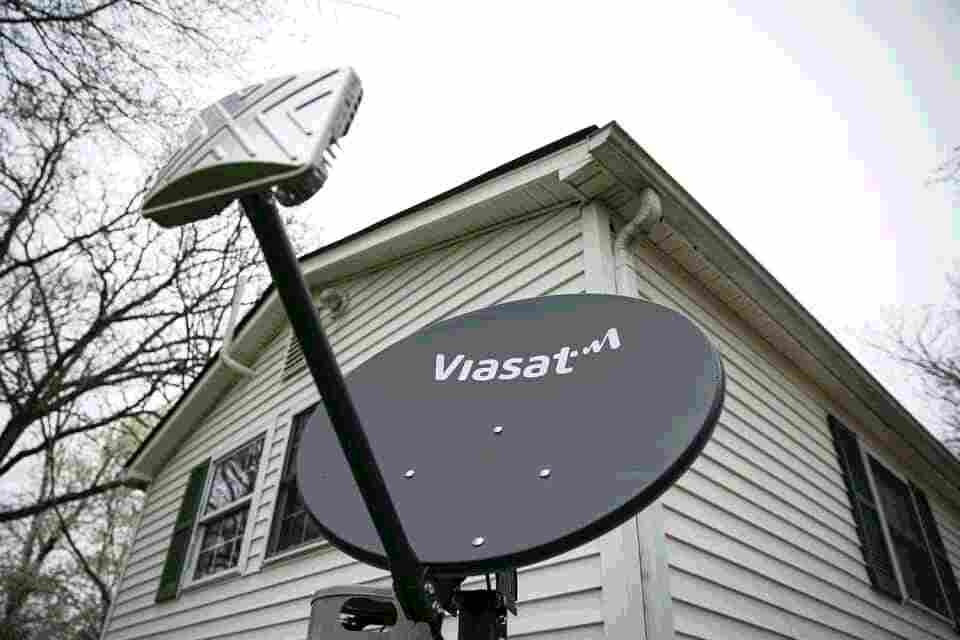Technology
Russia to blame for ‘unacceptable’ satellite attack that caused mass outages before Ukraine invasion, US and UK claim

RUSSIAN officials were behind the cyberattack against satellite provider Viasat, the US, UK and European Union claim.
American communications company Viasat was targeted on February 24, triggering several outages across central and eastern Europe.
US, UK and EU claim that Russian officials were behind the cyberattack against satellite provider Viasat
Outages and disruptions occurred just hours before Russian forces moved in on Ukraine via a northeastern front attack on the city of Kharkiv.
Now, the EU along with its member states and international partners is placing the blame on the Kremlin.
“[The European Union] strongly condemns the malicious cyber activity conducted by the Russian Federation against Ukraine, which targeted the satellite KA-SAT network, operated by Viasat,” the EU said in a statement.
EU officials denounced the cyberattack, adding that it caused “indiscriminate communication outages and disruptions across several public authorities, businesses and users in Ukraine.”
Read more on Russia
Viasat confirmed in late March that not only were thousands of Ukrainians affected but tens of thousands of other broadband customers across Europe.
“This unacceptable cyberattack is yet another example of Russia’s continued pattern of irresponsible behaviour in cyberspace, which also formed an integral part of its illegal and unjustified invasion of Ukraine,” EU officials said.
‘Almost Certain’
The UK’s National Cyber Security Centre (NCSC) said in a separate statement that it has been “almost certain” that Russin officials were responsible for the cyber-attack impacting Viasat.
Most read in Tech
“Although the primary target is believed to have been the Ukrainian military, other customers were affected, including personal and commercial internet users. Wind farms in central Europe and internet users were also affected,” the statement read.
When asked to explain the decision to decry Russia as the perpetrator behind the Viasat attack, NCSC chief executive Lindy Cameron told BBC News: “It is important to challenge the ability to do this with impunity.”
The move is out of the ‘Russian playbook’
In a statement that came out later on Tuesday, U.S. Secretary of State Anthony Blinken said that the US was also “sharing publicly its assessment that Russia launched cyberattacks in late February against commercial satellite communications networks to disrupt Ukrainian command and control during the invasion”.
Blinken further noted that this move is right out of Russia’s playbook, as the Kremlin has previously deployed “multiple families of destructive wiper malware, including WhisperGate, on Ukrainian Government and private sector networks.”
What about consequences?
In response, the EU said it’s currently thinking about what action to take “to prevent, discourage, deter and respond to such malicious behaviour in cyberspace”.
The governing body added that it will continue to provide “coordinated political, financial and material support to Ukraine to strengthen its cyber resilience.”
“Russia must stop this war and bring an end to the senseless human suffering immediately,” the EU’s statement concluded.
Read More On The Sun
Meanwhile, Viasat told the BBC: “We recognize international governments have identified who they believe to be responsible for the cyberattack on the KA-SAT network.
“We have and will continue to work closely with relevant law enforcement and governmental authorities as part of the ongoing investigation”.
We pay for your stories!
Do you have a story for The US Sun team?
Email us at exclusive@the-sun.com or call 212 416 4552.
Like us on Facebook at www.facebook.com/TheSunUS and follow us from our main Twitter account at @TheSunUS